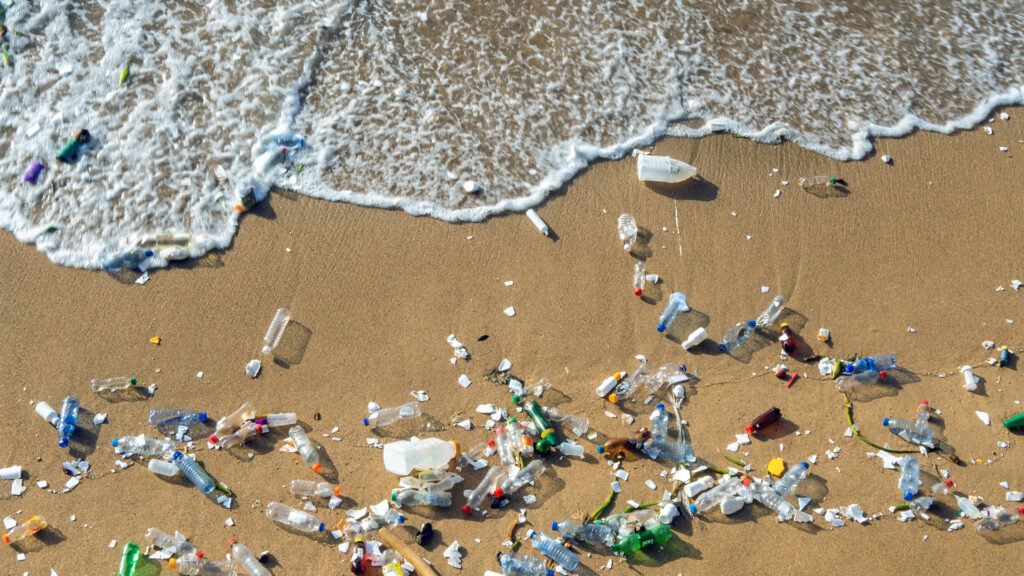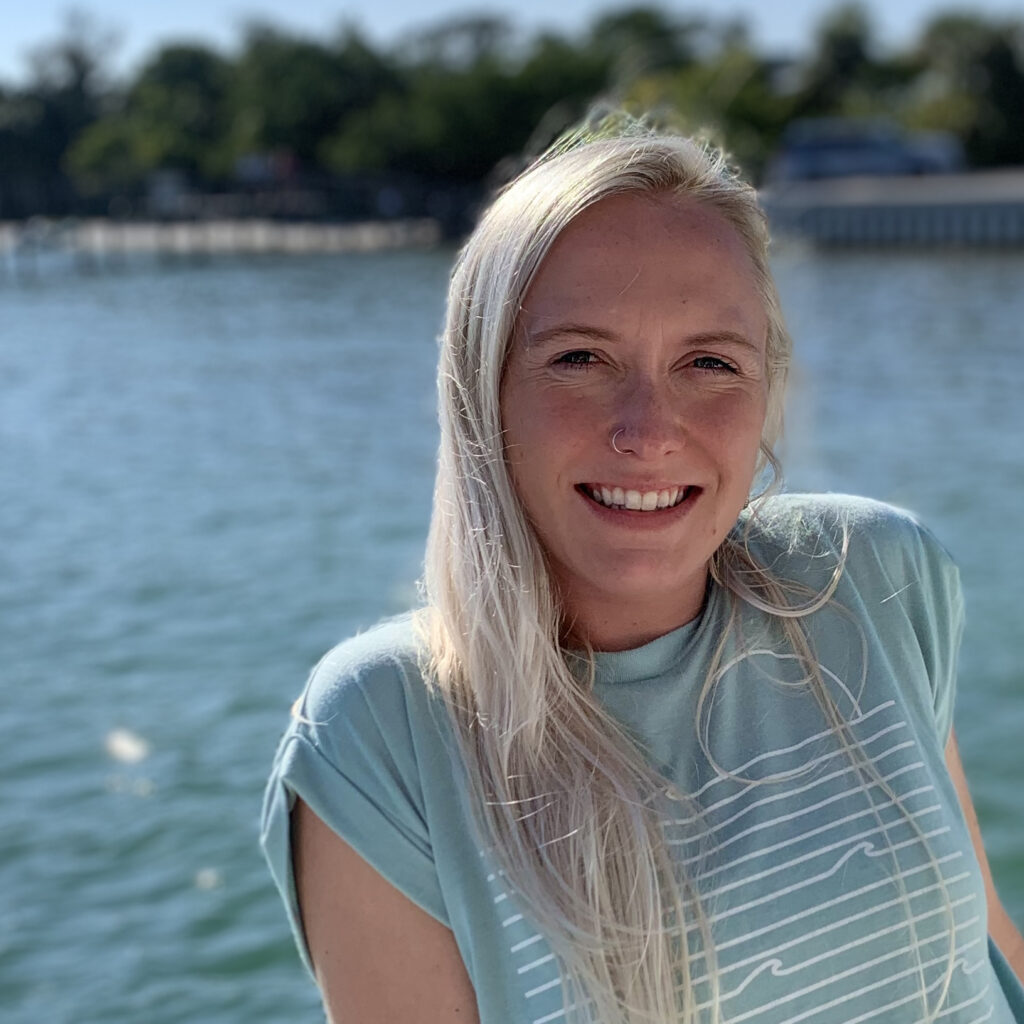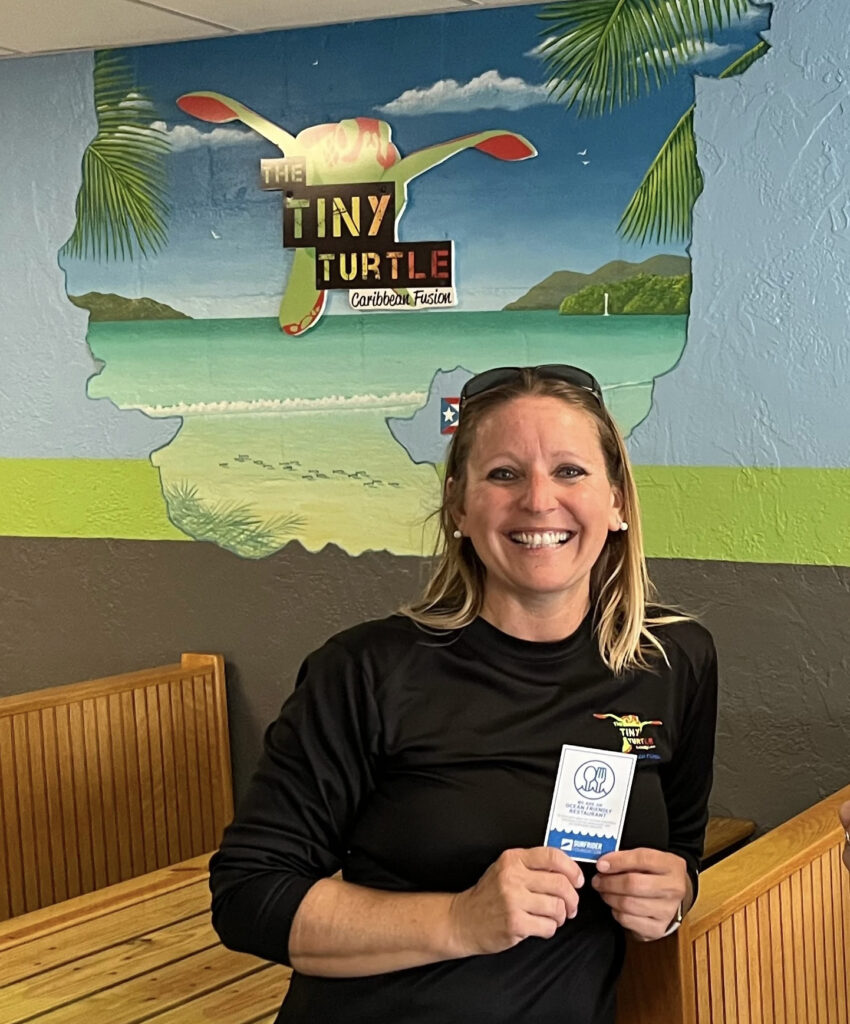By CJ O’Brien, Surfrider Foundation; and Kelly Lieneke, Tiny Turtle restaurant
For more than a decade, Floridians have not had the authority to regulate the plastics that litter our state’s prized beaches, clog our waterways and cost local governments and tourism millions of dollars annually.

While the Florida Legislature has repeatedly heard from the Department of Environmental Protection (DEP) that action must be taken to address plastic pollution and its negative impacts on the Sunshine State, it has failed to do so. DEP has provided legislative and non-regulatory recommendations. To date, none have been enacted or implemented.
In fact, instead of taking steps to protect Florida’s coast, the Legislature introduced SB 1126/HB 1641 (Regulation of Auxiliary Containers) at the beginning of the 2024 legislative session. If passed, the bill would update the definition of “auxiliary containers” and prevent the regulation of single-use and reusable bags, bottles, cups, wrapping and containers sourced from plastic and various other materials to the state.
The legislation would take authority away from state agencies and local governments, forbidding them from passing laws or enacting rules to prevent plastic pollution or regulate any of the items listed. It would also eliminate the one-state report that studies the impacts of plastic pollution on the state of Florida and render any existing ordinance or rule regulating plastics to be void and null.

This legislation has been introduced despite the opinion of the overwhelming majority of Floridians pleading for the state to do something, including restoring local governments’ ability to regulate single-use plastic. This legislation has also been introduced despite a vibrant restaurant industry intentionally taking plastic out of their business model with positive results. Those restaurants include members of Surfrider Foundation’s Ocean Friendly Restaurants Program. This voluntary program recognizes restaurants that are committed to reducing single-use plastic by eliminating plastic bags, plastic bottles, expanded polystyrene foam and more. In Florida alone, 26 Ocean Friendly Restaurants serve over 4,000 single-use plastic-free meals a day.
One Ocean Friendly Restaurant in Cocoa Beach, The Tiny Turtle, started small and has quickly become one of Yelp’s “Top 100 U.S. Places to Eat” for its delicious Puerto Rican cuisine and dedication to sustainability. If you dine at The Tiny Turtle, you’ll find that all meals are served on reusable plates, utensils and cups. If you need a straw, they are made of paper and only provided upon request. If you need to take food to go, you’ll be given compostable containers, utensils and paper bags. By swapping single-use plastic for more eco-friendly products in their operations, The Tiny Turtle saves more than $3,000 a year and has gained a loyal community of customers who value their business practices.

More studies show restaurants can save between $3,000 and $22,000 by eliminating single-use plastic. In addition, reliable plastic alternative products made from paper, bamboo, hay, wood and seaweed are now more available than ever before, yet they are still more expensive than plastic. If state agencies and local governments in Florida had the authority to regulate plastic products, it would inspire even more free-market innovations and lower the price of these alternatives for restaurants, making it easier for them to reach their plastic reduction goals. Since the state Legislature continuously fails to act on the plastic pollution crisis, the onus has been put on small businesses in Florida to lead the way.
Floridians and small business owners want the Legislature to address the plastic elephant in the room, not to further entrench and expand the preemption and prevent any future action to address the plastic waste crisis. Florida state legislators must put a stop to HB 1641 and SB 1126 (Regulation of Auxiliary Containers), and instead take meaningful legislative action to ensure Florida’s beaches, ocean, communities and economy are healthy for future generations.
CJ O’Brien manages The Surfrider Foundation’s Ocean Friendly Restaurants Program. Kelly Lieneke is the owner of The Tiny Turtle restaurant.
If you are interested in submitting an opinion piece to The Invading Sea, email Editor Nathan Crabbe at ncrabbe@fau.edu. Sign up for The Invading Sea newsletter by visiting here.



